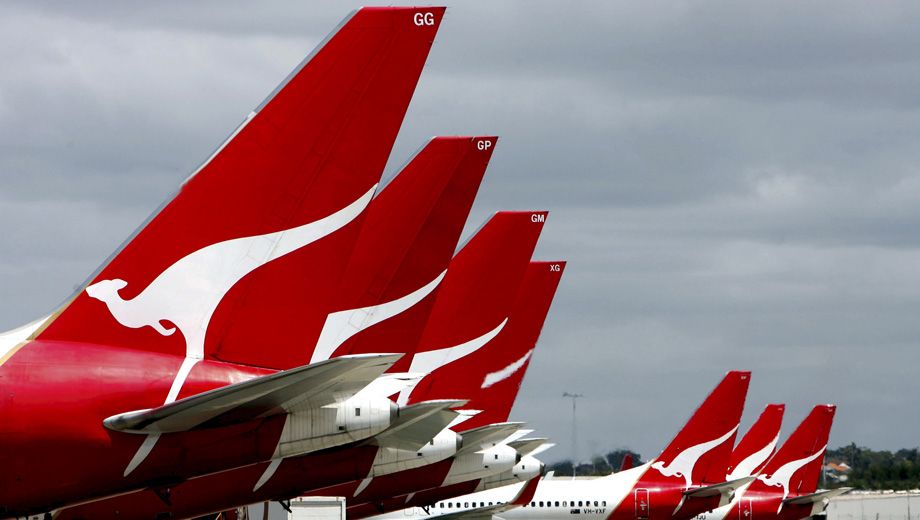Qantas looks to be on track to land a 'debt guarantee' from the Federal Government alongside a possible change to the Qantas Sale Act.
But just what exactly is a government debt guarantee, and what would it mean both to Qantas and the Australian taxpayer?
Qantas and the government debt guarantee
A debt guarantee does pretty much what it says on the can – it's a commitment to cover a debt if the borrower defaults.
In the same way that parents often act as a guarantor for the loans and mortgages of their children, the Federal Government would agree to guarantee to pay Qantas' outstanding debt should the airline collapse.
That's not a likely scenario, but the imprimatur of government backing would provide a much-needed boost to Qantas' financial position.
A government guarantee isn't a novel concept – it's similar to the backing extended to Australia’s banking sector during the global financial crisis – but nor is it trotted out all that often.
The Federal Government has also indicated that it would need to be convinced that Qantas was taking its own hard decisions and getting its business in good shape before a debt guarantee and changes to the Qantas Sale Act were enacted.
The debt guarantee would be positioned as providing short-term relief while changes to or a wholesale scrapping of the Qantas Sale Act would be a strategy for the airline's long-term prospects.
The government debt guarantee and the taxpayer
How would this debt guarantee it impact the taxpayer?
In the short term, not one whit.
No money would be given to Qantas – in fact, the airline and its CEO Alan Joyce have time and again insisted they aren't looking for a handout or in this instance a bail-out.
(Indeed, Qantas would actually pay the Government a fee for underwriting its debt.)
However, the guarantee would appear on the government's books as a forward liability – a necessary accounting reality should Qantas default on its loans.
And should that happen, taxpayers would inevitably be dragged into carrying that cost.
The not-so-level playing field
While the debt guarantee remains a proposal at this stage, Virgin Australia has been quick to point out that any such deal should be extended to all Australian airlines rather than be exclusive to Qantas.
Virgin Australia CEO John Borghetti says that should the Federal Government give Qantas a debt guarantee, he would be asking for the same support "within 24 hours."
“The Qantas Sale Act is outdated and it should be removed and there is no doubt about that" Borghetti said, but cautioned that "two wrongs don't make a right."
"Just because the Qantas Sale Act is wrong, making another wrong by providing a debt guarantee does not make the situation right."
Read: Virgin Australia CEO says "Qantas wants a free ride"
Underpinning this is the notion that while a debt guarantee wouldn't see any money given or lent to Qantas, it could be considered a de facto financial rescue package because the government support would lower Qantas’ risk factor and potentially help it bounce back up from the ‘junk status' as rated by credit rating agencies.
The high cost of junk
It could also lower the cost of future borrowings and potentially the refinancing of existing debt.
That's a concern to Virgin Australia which like almost all of the world's airlines is also rated in the same high-risk 'junk' category where Qantas now sits.
Only three airlines – Lufthansa, Air New Zealand and US carrier Southwest – carrying the medium-risk investment tag which Qantas enjoyed until late last year.
One of the perks of being 'better than junk' is that you can count money paid for tickets as part of your cash balance before a flight is taken.
Airlines in the high-risk category must put these funds into escrow until the flight takes off.
That's one reason – or rather, several hundred million reasons – why Qantas is keen to reclaim its investment-grade rating, and securing a government-backed debt guarantee is considered vital to this.
Follow Australian Business Traveller on twitter: we're @AusBT


14 Jun 2013
Total posts 353
Thank you for the 'plain English' explanation of this debt guarantee and what it actually means!
21 Apr 2012
Total posts 3012
What is the likelihood of default?
Presumably the last government broke the bank and we all need to be tightening our belts - So it is only logical the current government is stepping in only because it knows default will never come.
If the risk of default is low enough for the government to step in, then is the result of the rating agencies accurate?
QFF Gold QC gold
26 Nov 2012
Total posts 56
If Qantas "collapses" and therefore defaults on it's loans and the government steps in, then Qantas will not "collapse" because the debt that has caused it to collapse in the first plcae disappears. So if it does happen, does Qantas automatically become th eproperty of the government? If that is the case then I am very happy with that arrangement.
22 Jun 2013
Total posts 96
This all looks a bit pre-emptive now. Sadly
EK
28 Feb 2014
Total posts 1
This is not at all cost free to the taxpayer (see history of bailouts including Ireland or Banks, Italy of Alitalia, US of General Motors).
Qantas could get loans in the private market without a government guarantee.
They would just be far more costly. That cost difference represents the market's estimation of the probability of a default.
28 Feb 2014
Total posts 1
The debt guarantee is not a free ride. If the government adopts a similar pricing for risk it did for the banks, then the guarantee fee could be in excess of 2.50%.
To put this costs to Quantas in contex, that's already approximately what the market is demanding for their debt over the swap curve. The swap curve is approx .5% to 1.00% higher than the gov't funding curve. If best case on the fee is available then Quantas only reduces its borrowing costs by 0.50% and would be still paying more for its borrowing on a net basis.
The reality is that the business needs to be a "ongoing concern", and the recovery will be slow and painful for everyone.
I think the government has not complicated the long road ahead and are using a model of guarantee that was a solution for a crisis of liquidity and not credit!
Hi Guest, join in the discussion on Qantas' government debt guarantee explained